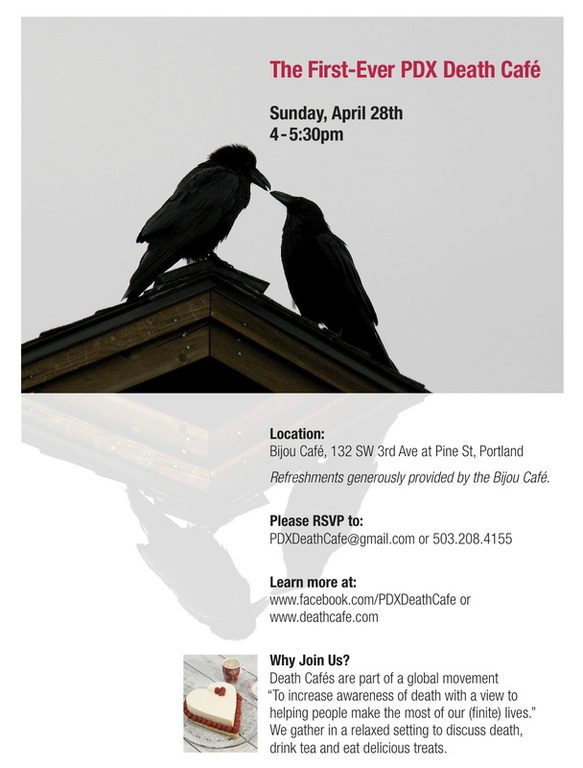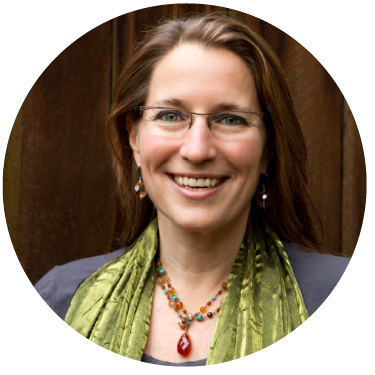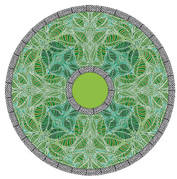
Not a therapy or bereavement group, the relaxed Death Café discussion format is attracting people of all ages and from all walks of life to gatherings from Switzerland and London (where the movement started) to Columbus, Ohio (the first in the U.S) to a tree house in L.A.’s Topanga Canyon.
Last month when I was in in another city I had the opportunity to attend a Death Café organized at a local college for faculty and staff. As with most Death Cafés, this one opened with participants responding to the question, “What brought you here?” Often, according to other Café organizers I’ve spoken to, this one question is enough.
The greatest value is just providing a place for conversation, says Lizzy Miles, who organized the first Death Café in this country. “People have stuff on their minds; they’ve never had a place to talk about it. They want to talk and to listen, but not to an instructor. What they like is the chance to express their own thoughts and hear other points of view.”
Unified by a common set of principles (accessible and respectful, free from ideology, safe and nurturing, not-for-profit, and confidential), each Café reflects the personality of its community. At the college Café I attended, our host shared a Twilight Zone episode (vintage 1962) she uses in her course on death and grief around the world. With Mister Death played by a baby-faced Robert Redford, the show provided a vivid reminder of how fear of The End can prevent us from living our lives to their fullest. It inspired discussion on how we imagine death coming, along with such life-affirming questions as “What does fear keep you from doing?” and “From where do you draw your strength?”
If you’re in Portland, join us on Sunday, April 28th (details below and on our PDX Death Café Facebook page). If you’re elsewhere and interested, check out the global Death Café web site to find one – or start one – near you.
- Complete the statement: Death is______________.
- What factors in your life lead you to feel about death the way that you do?
- Do you have any contradictions in your own thoughts about death?





 RSS Feed
RSS Feed